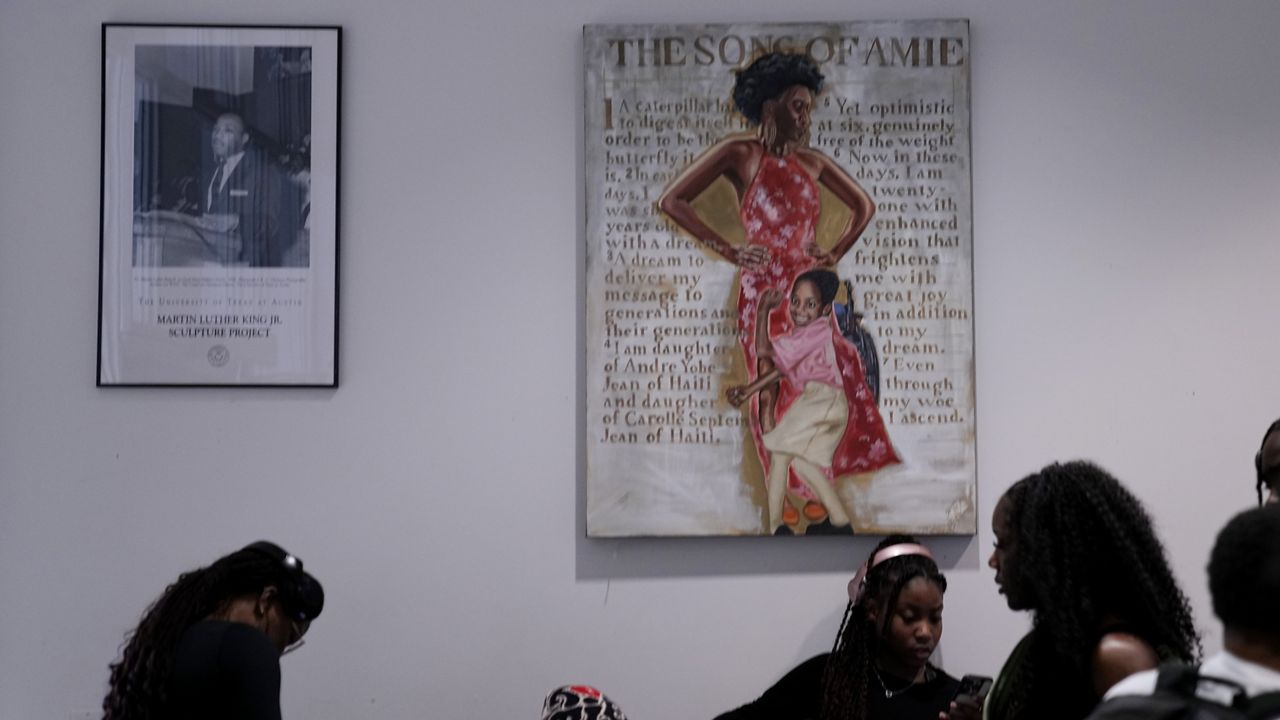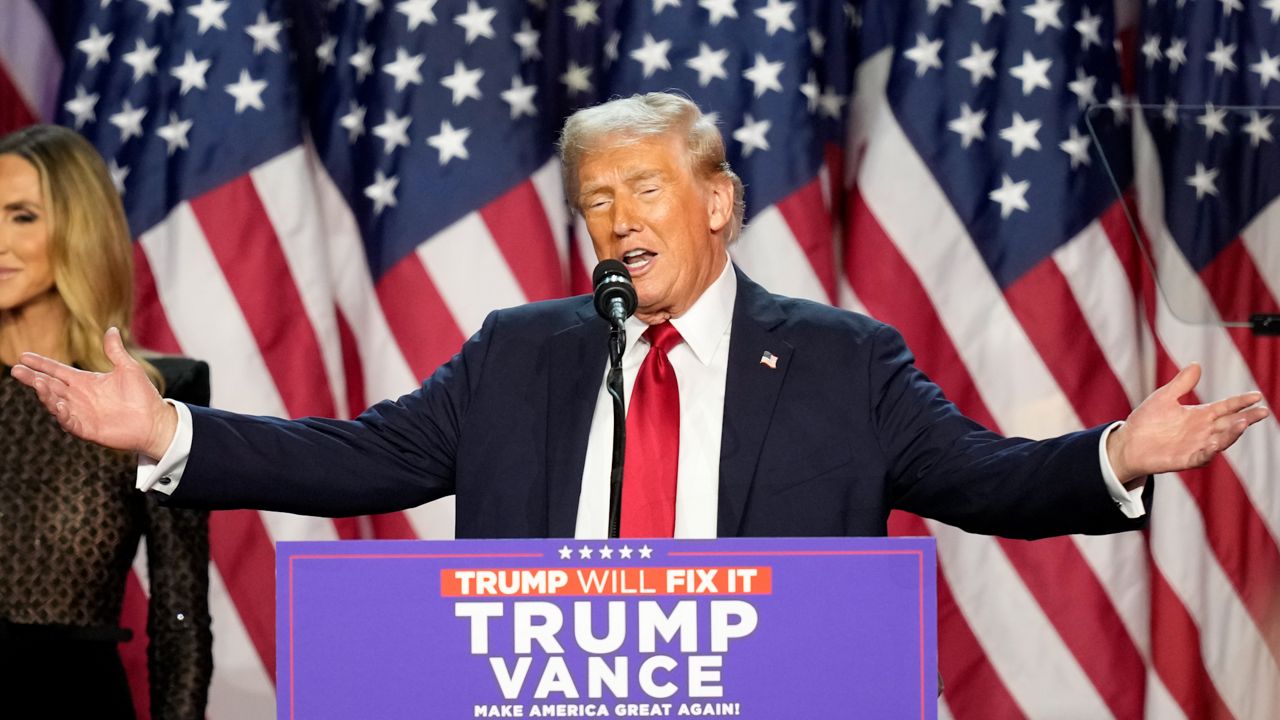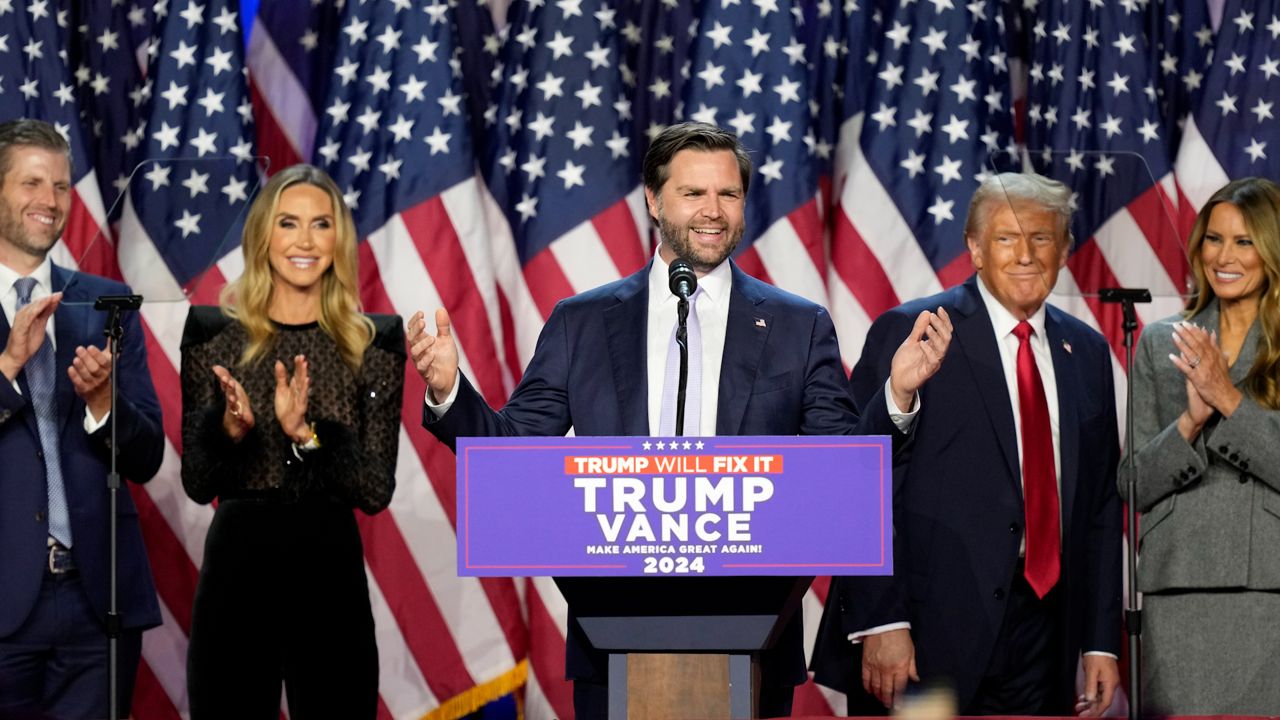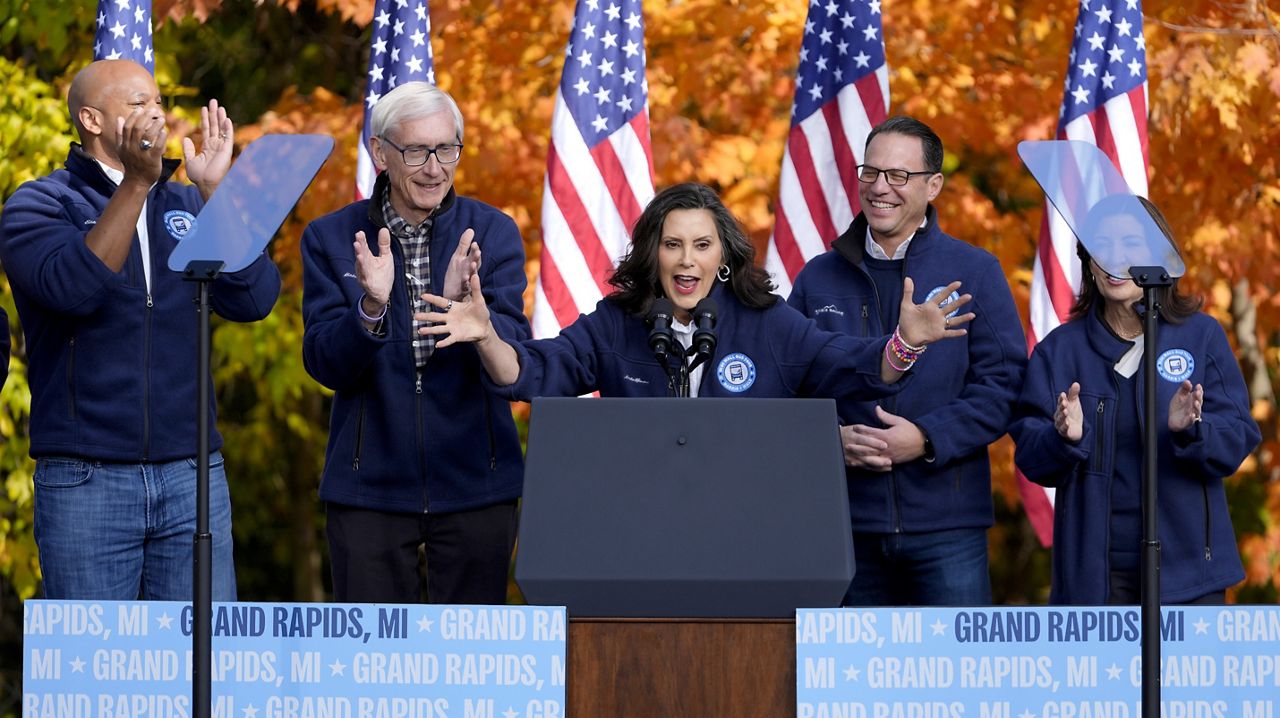Alleging an illegal conspiracy to use intimidation, harassment and fear against its representatives and potential candidates, the bipartisan third-party group No Labels said Thursday it has filed a complaint with the Department of Justice.
Members of the group said they are requesting a formal DOJ investigation into whether the individuals engaging in the alleged conspiracy are subverting No Labels’ right to access the ballot in time for November’s general election.
No Labels representatives said they are responding to American voters, claiming that the vast majority of them are not happy with the likely major party nominees for this year’s election: President Biden for the Democratic Party and former president Donald Trump for the Republican Party.
“They want another choice, and all No Labels is doing is offering them that choice,” No Labels chief strategist Ryan Clancy said during a news conference announcing the DOJ complaint.
No Labels, he said, is a 501(c)(4) social welfare nonprofit that is abiding by a 2008 federal court decision that allows it to obtain ballot access as long as it is not advocating for a specific candidate. While No Labels is not running a campaign or a candidate, it is seeking to lay the groundwork for an as-yet-unknown nominee who can take advantage of its ballot access before November’s election.
So far, No Labels has won ballot access in 14 states. It is in the process of securing access in another 13 states and intends to win ballot access in 32 states later this year.
“The right to obtain a ballot line is just as protected by the U.S. Constitution as the right to register to vote,” Clancy said. "But powerful forces in Washington clearly don’t respect this right and have made it their mission to prevent No Labels access to the ballot by any means necessary.”
Clancy said No Labels’ opponents have been using intimidation, harassment and fear for the past year to prevent the group from accessing the ballot. The group alleges most of the harassment has been coming from the left, but it anticipates far-right groups will also object to a No Labels unity ticket once the group wins more ballot access in red states.
In its DOJ complaint, the group cited an audio recording of a meeting of the alleged co-conspirators, where a participant said it planned to dissuade candidates from appearing on a No Labels presidential ticket if they found “one fingernail clipping of a skeleton” in their closet so they could “come at you with every gun we can possibly find.”
The group also alleges No Labels co-founder Holly Page was approached by a representative of the democracy-defense group The Lincoln Project and told to walk away from No Labels or “never be able to work in Democratic politics again. You’re going to get it with both barrels.”
A request for comment from The Lincoln Project was not answered before deadline.
In its DOJ complaint, No Labels said the individuals and groups that allegedly intimidated its members have violated federal criminal laws that prevent individuals from conspiring to oppress, threaten or intimidate anyone in the free exercise or enjoyment of any right or privilege secured by the U.S. Constitution or laws of the United States. The same law — 18 U.S. Code 241 — has been cited against Trump in felony cases against him, No Labels said.
No Labels is also leaning on 18 U.S. Code 1951, which prevents people from using fear and intimidation to secure a benefit for themselves — in this case, another political party stopping No Labels from getting on the ballot.
“When you use intimidation or create fear to conduct illegal activities, you have violated the federal extortion statute,” said No Labels volunteer and former U.S. Attorney Dan Webb.
Webb said the tactics the alleged conspirators are using also violate voters’ First and 14th Amendment rights.
“This is not just about No Labels and its staff,” Webb said. “It’s about the more than 1 million voters who have now signed petitions to get No Labels on the ballot. It’s also about the majority of Americans who want another choice for president.”
No Labels contends that 65% of Americans would like a choice for president other than the likely Democratic and Republican nominees.
A Gallup Poll last week found that President Biden is viewed favorably by 41% of U.S. adults, and Trump is viewed favorably by 42%. Both are polling lower than they did in October 2020 prior to their last presidential election faceoff. The poll found independent candidate Robert F. Kennedy Jr. had a 52% favorable rating, while GOP candidates Nikki Haley and Ron DeSantis scored 33% and 32%, respectively.
No Labels launched in 2009 with a simple mission, according to Clancy: “to give a voice to the commonsense majority in this country.”
While the group has spent much of the past 15 years focused on Congress, where No Labels inspired the creation of the bipartisan Problem Solvers Caucus and a similar Senate group that helped pass the 2021 infrastructure bill, it is turning its attention this year to ballot access.
“It’s a matter of giving voice to millions of Americans who feel abandoned by the Democratic and Republican political establishments,” No Labels Founding Chairman and former U.S. Sen. Joe Lieberman said Thursday. “There’s a lot of talk about democracy being on the ballot in 2024 -- and in many ways it is -- but I think it’s really important to understand what we mean by the word 'democracy.'”
Lieberman said that just because citizens of a country are allowed to vote does not mean they live in democracies. He said Russia, Iran and North Korea all conduct votes that “are meaningless because long before Election Day, the governments of those countries decide who can and cannot be on the ballot. We don’t want that to happen here in America.”
He said the actions of the alleged conspirators in No Labels’ DOJ complaint are "no less than an attempt to knock the legs out from under American democracy” by “taking it upon themselves to limit the choices of the American people on Election Day, as if the voters in America can’t be trusted to do the right thing. That is profoundly anti-democratic.”
Lieberman said No Labels is beginning to talk to potential candidates who can take advantage of the ballot access the group intends to provide by Election Day.
“When it becomes clear, as it certainly looks it will, that Republicans will nominate Trump and Democrats Joe Biden, then around Super Tuesday in March or perhaps earlier, we will make a decision about whether the data tell us there’s a constructive role for us to play by offering our third lines in all the states to a bipartisan unity ticket.”
A potential No Labels candidate is likely to emerge no later than April, he said. The group has been talking to potential candidates in both parties. GOP candidate Nikki Haley could be a possibility “if she declares any interest,” Lieberman said, but she hasn’t so far because she’s still in contention for the Republican nomination.
Declining to say which candidates the group has so far spoken to, Lieberman said, “None of them have said ‘no,’ but none of them have really said ‘yes, I’m ready’ because they want to be convinced, just like we do, that it’s’ going to be Trump against Biden and that there’s a plausible chance for a bipartisan unity ticket to win. Right now, based on our polling, we think there is.”









